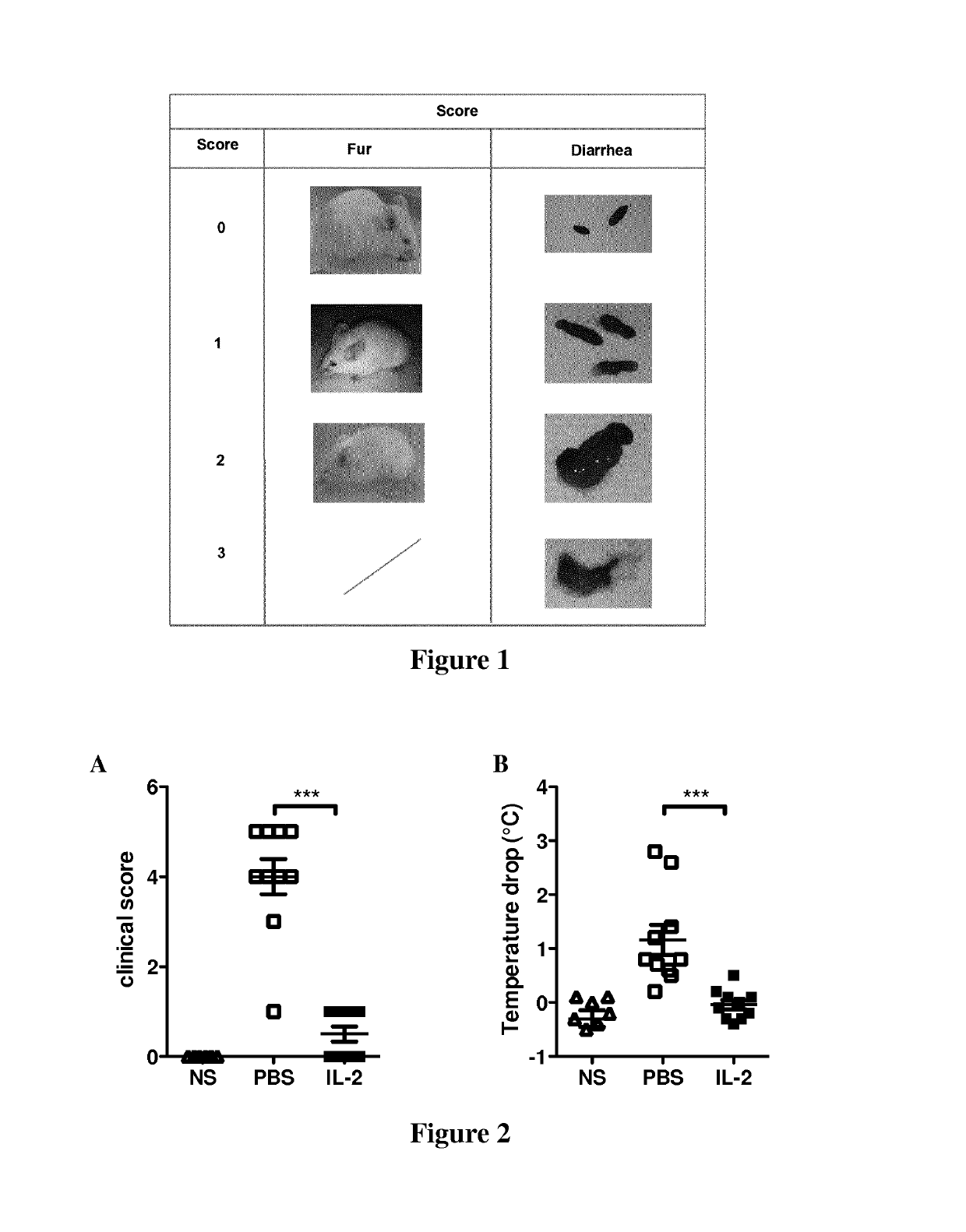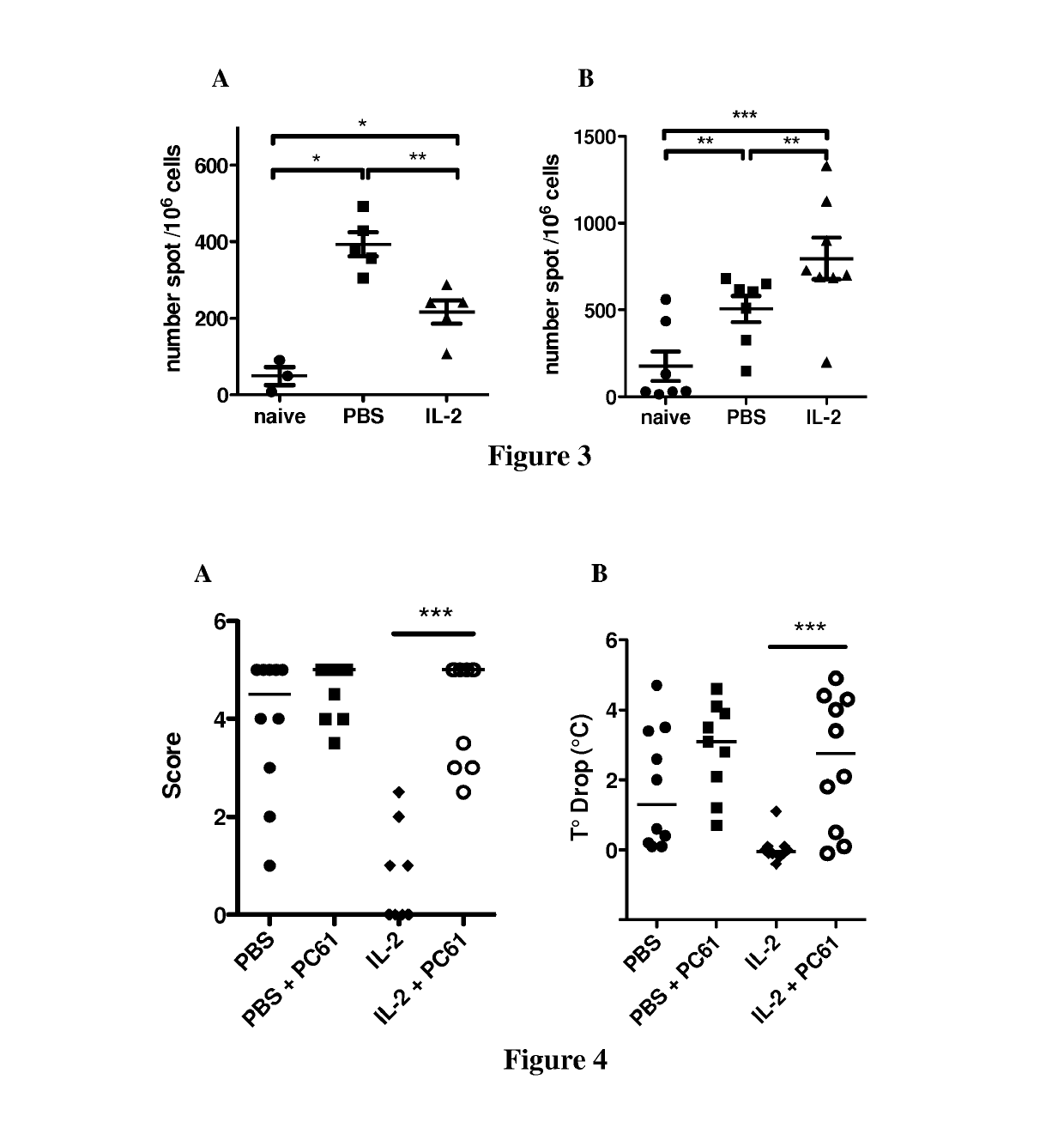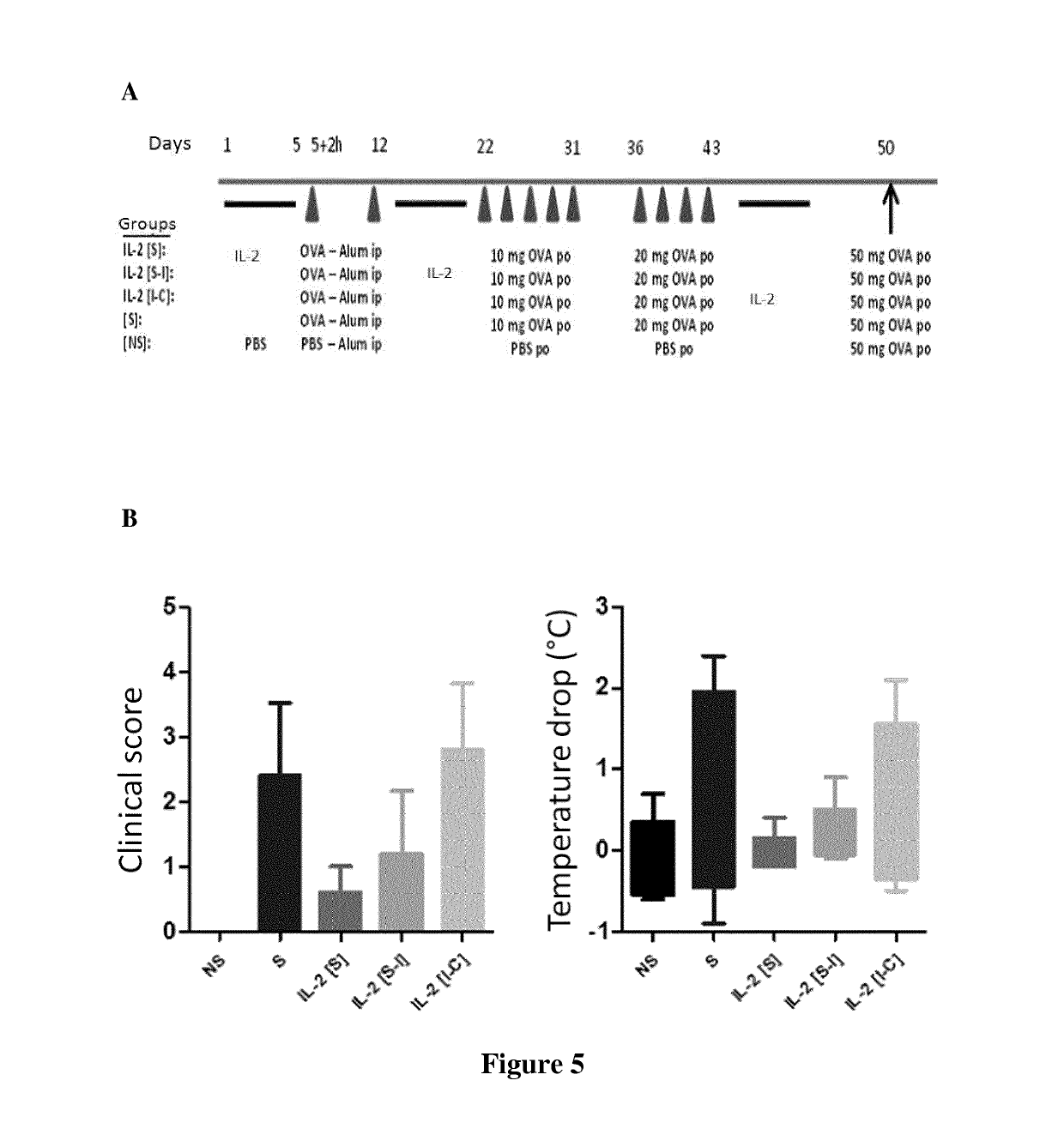Interleukin-2 for treating food allergy
a technology of interleukin-2 and food allergy, which is applied in the direction of immunological disorders, antibody medical ingredients, peptide/protein ingredients, etc., can solve the problems of preventing breathing, trachea restriction, anaphylactic shock,
- Summary
- Abstract
- Description
- Claims
- Application Information
AI Technical Summary
Benefits of technology
Problems solved by technology
Method used
Image
Examples
example 1
reventive Treatment of Food Allergy
Materials and Methods
[0100]The inventors have developed a murine food allergy model with high degree of anaphylaxis and allergic diarrhea induced by orally administered ovalbumin (OVA), 4 times during the 3rd week in pre-immunized mice.
[0101]Female BALB / c mice were sensitized with two intraperitoneal (i.p.) injections of 10 μgOVA mixed with aluminum hydroxide gel (alum) each over a span of 1 week. All the mice were orally administered OVA at a dose of 20 mg / mouse dissolved in phosphate-buffered saline (PBS, p.o.) four times a week to induce food allergy. Four to six oral treatments with OVA were required to induce severe allergic symptoms in untreated sensitized control mice.
[0102]Food allergy was evaluated by changes in fur aspect and by allergic diarrhea (FIG. 1). Allergic diarrhea was assessed by a severity score of fecal form from 0 to 3: score 0, solid state; score 1, funicular form; score 2, slurry; score 3, watery state. Fecal conditions wit...
example 2
reg in IL-2 Immunotherapy
[0106]To evaluate the role of Tregs in low-dose IL-2 treatment efficacy, the inventors performed similar experiments in which Tregs were depleted in IL-2 treated and control groups. Thus, mice were first treated with low dose IL-2 or PBS and then injected or not with PC61 mAb (anti-murine CD25 rat IgG1) to deplete CD25-expressing Treg. Mice were then sensitized and challenged with OVA to induce food allergy. The inventors observed that Treg depletion abrogates the efficacy of low dose IL-2 treatment since mice treated with PC61 had severe allergic symptoms and an important decrease in body temperature (FIG. 4).
example 3
tment Modalities
[0107]3.1. The inventors have further investigated the efficacy of IL-2 when administrated after mice sensitization (late preventive effect) or allergy induction (therapeutic effect) and tested the long-term efficacy of the treatment (FIG. 5).
[0108]Mice were sensitized and treated with low-dose of IL-2 before the challenge (“IL-2 [S-I]”: preventive treatment) or after the challenge (“IL-2 [I-C]”: therapeutic treatment) with OVA. Several cycles of allergen administration were done to investigate the long-term efficacy of the treatment. In controls, mice were also treated before the sensitization (“IL-2 [S]” or non-treated (S)).
[0109]The inventors demonstrated that mice treated with IL-2 before the allergy induction (“IL-2 [S]” and “IL-2 [S-I]”) or after allergy induction (“IL-2 [I-C]”) are protected from allergic disease. The long-term efficacy of the preventive and therapeutic treatment has been proven since IL-2 treated are protected after several cycles of OVA admi...
PUM
| Property | Measurement | Unit |
|---|---|---|
| body temperature | aaaaa | aaaaa |
| Body temperature | aaaaa | aaaaa |
| stability | aaaaa | aaaaa |
Abstract
Description
Claims
Application Information
 Login to View More
Login to View More - R&D
- Intellectual Property
- Life Sciences
- Materials
- Tech Scout
- Unparalleled Data Quality
- Higher Quality Content
- 60% Fewer Hallucinations
Browse by: Latest US Patents, China's latest patents, Technical Efficacy Thesaurus, Application Domain, Technology Topic, Popular Technical Reports.
© 2025 PatSnap. All rights reserved.Legal|Privacy policy|Modern Slavery Act Transparency Statement|Sitemap|About US| Contact US: help@patsnap.com



